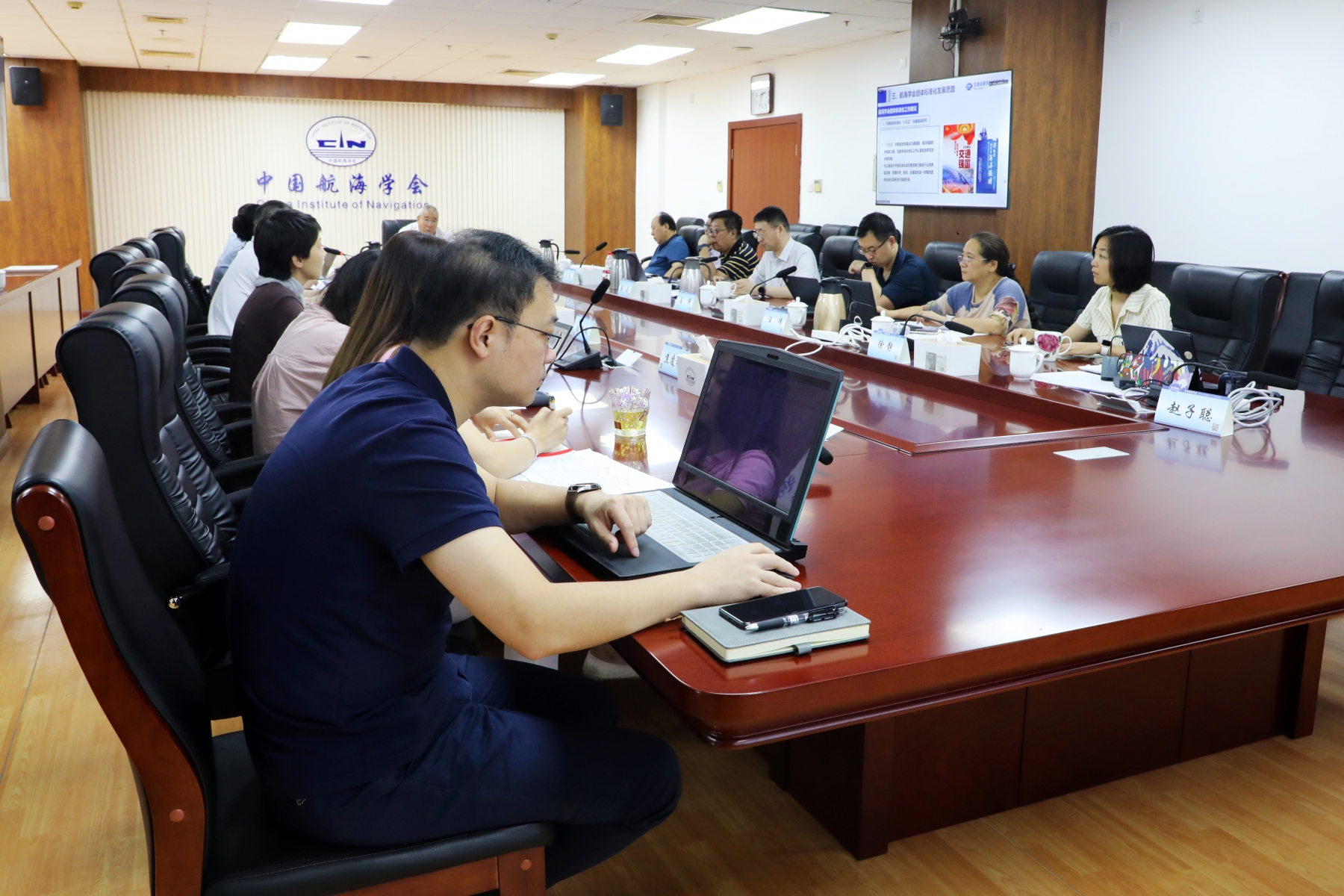China Institute of Navigation (CIN) held the first meeting of Standardization Committee for 2025.
The first meeting of the Standardization Committee of the China Institute of Navigation (CIN) was successfully held in Beijing on 23 July 2025. The meeting focused on reviewing, planning, and advancing the group standardization work in the field of maritime sector, with the aim of further standardizing its management, enhancing its quality, and supporting the high-quality development of the nation’s maritime endeavors. The meeting was conducted in a combination of offline and online formats, with a total of 34 members attending, including 11 members attended on-site, and it was presided over by Liu Shun, Secretary-General of CIN and Deputy Director of its Standardization Committee.
Shi Shiwu, Executive Deputy Director of the Standardization Committee of CIN, first delivered a summary of the group standardization work for the first half of 2025. He pointed out that, during this period, CIN had made some achievements in project approval review, drafting and revision, and promotion and application of group standards. Many of the newly developed standards were closely aligned with the practical needs of the maritime sector and have provided robust support for industry development. At the same time, he gave an objective analysis of existing shortcomings, thereby charting a clear course for subsequent efforts.
Wang Xianguang, Deputy Director of the Standardization Committee of CIN and Director of the Standardization Center at the China Academy of Transportation Sciences, briefed the latest requirements on group standardization issued by the National Standardization Administration and the Ministry of Transport’s Department of Science & Technology. He emphasized that, as standardization efforts deepen, our country is imposing stricter demands on the normativity, scientificity, and applicability of group standards. All relevant units and personnel must conscientiously study and fully grasp these new requirements to ensure that the CIN’s group standardization work remain fully aligned with national policies and the evolving needs of the industry.
Liang Ke, member of the Committee, Director of the Communications Center at the Waterborne Transport Research Institute of the Ministry of Transport, presented the proposed revisions to the Administrative Measures for Group Standards of the China Institute of Navigation. He outlined the background to the revision and its principal changes, focusing on updates to clauses covering responsibilities, project initiation, drafting organization, review and implementation evaluation, and copyright. Aligned with the National Standards Administration’s performance-assessment criteria for group standardization, this revision refines the structure and content of the Administrative Measures for Group Standards of the China Institute of Navigation, clarifies the duties of all stakeholders, and standardizes management requirements at every stage of the group standardization work, thereby providing a robust institutional guarantee for the efficient development of these standards.
During the session where suggestions were made for recommendations for strengthening the Committee and guiding its future work, committee members offered a wealth of constructive suggestions. Lively discussion focused on optimizing the Committee’s organizational structure, building a robust talent pipeline, and refining the overall standardization system. The targeted, actionable proposals generated will serve as a collective intellectual resource to underpin the Committee’s long-term development.
Subsequently, the committee members discussed on the collections and proposals of the first batch of group standards for 2025 submitted to the CIN. Drawing on current technological trends in the maritime sector, industry requirements, and the submitted documentation, they deliberated on each proposal’s necessity and feasibility, thereby safeguarding the quality and value of the standards to be developed. In this batch, 72 proposals were received, 63 passed the preliminary review, and 46 were ultimately approved for initiation. Going forward, the Institute will organize the drafting of these group standards in accordance with the committee’s guidance.
Li Shixin, Executive Vice President of the CIN, made a summary of the meeting. He expressed full appreciation for the successful convening of the meeting, describing it as substantive and productive. Going forward, he emphasized three priorities: first, to ensure the quality of drafting and revision of group standards while strengthening their promotion, application, and implementation assessment; second, to continuously enhance the Committee’s own capacity-building and governance; and third, to respond proactively to national policies and keep pace with industry development, thereby elevating the Institute’s group standardization work to new heights and delivering even greater contributions to the advancement of the maritime sector.

